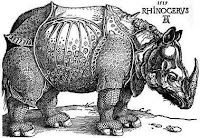What causes the downfall of large and invincible-seeming empires like those of the Romans? The Romans had almost the entire world in the palm of their hands. So what happened?
One of the crucial reasons for their downfall has been the lack of political and national unity. On the level of government, the Romans began to break apart when they divided their territory into even parts.
The Second Triumvirate turned out to be a veritable headache for the Romans. Augustus had a deal with Marc Anthony and Lepidus. The latter was stripped from office due to usurping power in Sicily and spent the rest of his life in exile, whereas the ambitious and power-hungry Marc Anthony defied the much younger and less battle-experienced Augustus. From the East, Marc Anthony was causing so much trouble that Augustus decided to fight against him and regain the territory he had allotted to him.
Such intense internal strife, capable Romans against other Romans, is a dangerous undertaking because there were always more pressing problems, for example, the constant “barbarian” threat, as well as the threat from other growing empires such as the Parthians, the Iranians, from the East. It temporarily weakened or distracted the Roman Empire; however, the able Augustus regained absolute power and controlled the rest of the empire with a firm hand for decades to come, decades of peace during which the doors of the temple of Janus remained shut.
The Empire ached again when the territory was divided into equal shares; conspiracies and intrigues abounded; the Romans were at times confused as to who their Caesar was; the many usurping factions and overthrows culminated in an epoch where in some cases the soldiers decided to appoint their own Caesar. A lot of the confusion began when the old established rules were broken, and the senate dissolved, a point I will elaborate later when I deal with growing lawlessness.
Nonetheless, there was another threat underlying unity and this came mostly from within; there were many people who were seen as outcasts, such as slaves and gladiators. In fact, the gladiators revolted under their leader Spartacus, and the Romans managed only with considerable effort to calm them down and to suppress their movement.
The Romans were elitist, and the majority of the people were not accepted as citizens; it undermined feelings of national identity and identification eventually leading to popular national movements in most of Europe. If you exclude most members of your empire, they will obviously grow disenchanted and be prone to revolt.
The territory of the British Island is another example where the Romans failed to unite the conquered. The “British”, back then they were simply referred to as “barbarians”, accepted the Roman rule on the surface, but they secretly continued with their own established practices, which is why even after long rule, they never became “Romanized.” In the hour of opportunity, they struck hard and regained their freedom, as if they had never experienced Roman rule.
Another factor that undermined the stronghold of the Roman Empire was the lack of respect for the law. The early Romans had clearly established laws that they followed almost religiously. The Senate, which was initially comprised of the richest and the most skilled, had abundant control over appointing various positions in a democratic fashion.
An interesting fact about the senators was that it was an unpaid position, which is why the senators had to be rich in the first place. It was considered an honorary, almost holy post, reserved for the best and brightest to the benefit of Rome. A lot of those virtuous sentiments have unfortunately been lost in modern-day politics; senators these days earn mounds of money and use their influence mostly to their own personal benefit. I am not claiming that there were no intrigues or corruption in those times, but what is evident is that the body of the senate held considerable power and retained order. When the senate was later dissolved and declared powerless by the emperor, lawlessness and chaos ensued and became uncontrollable.
In Europe, the fractured estates under the feudal system had their own laws, which varied from lord to lord, and therefore, there were no binding universal laws. This had isolated groups from each other, and only later when they united and created nations with economic, cultural, political independence, they developed their own proper laws.
Yet the lack of respect for the law is a relevant issue nowadays. As mentioned earlier, since our political system can turn into a profit-wielding profession, corruption, which is a lack of respect for the norms, develops and grows. The president, the commander-in-chief, would, without remorse, lie to the people and to his/her own senate and congress for personal gain.
More often than not, politicians get away with criminal behavior since they are in a position of power and become immune and untouchable. The same is a problem from the
bottom up, when the people do not respect the law. In many countries the citizens reject laws they find inconvenient, or they resolve the issue with bribes.
Often politicians claim a higher status for themselves and, as a result, cannot be touched by the law, something that apart from injustice is a concrete example that not everyone is equal under the eyes of the law. As we can see, if not everyone accepts the rule of commonly shared laws, then any empire or country will not progress or be in peace, which eventually might lead to fragmentation.
A final point is the issue of faith. Apart from mismanagement, lack of trust in the government and unceasing intrigues, faith played a major role in the dissolution of the Roman Empire.
The Romans actually had been rather “open-minded” when it came to religions. They did not reject other religions as false or erroneous from the start, contrary to the tenets of Christianity, which claims that their God is the true and only one. Romans simply assimilated other beliefs and had a pantheistic religion with an abundance of gods, overseen by Jupiter, the Greek Zeus, who, nonetheless, was not all-powerful and also bound to the laws of nature.
How did Christianity influence, change and even destroy the Roman Empire? It was mostly because of the premise of a monotheistic religion that rejected traditional Roman beliefs completely. The Romans might have been tolerant when it comes to religions, yet they were smart enough to recognize the implicit threat that came with Christianity, which is why Christian followers were persecuted heavily and blamed for many of the internal problems of the Empire.
But the Romans lacked a consistent and continuous structure, due to the variable and inconsistent strategies and policies of different emperors. They did not have a continuous line of successors, and as such, the politics kept changing. Some of the Romans were not as diligent in controlling the spread of Christianity, which led to a culminating point when Constantine actually embraced the Christian religion at the expense of previous Roman beliefs.
The Romans were a superstitious people and that included everyone from the slave to Caesar. They would not undertake political actions until they had consulted with oracles and augurs. They also believed in premonition and the significance of dreams. Therefore, when Constantine prayed to the Christian God for the outcome of an important battle, which ended up victorious, he converted to Christianity. The tenets of equality and divine justice replaced what had been a rather elitist government and as such undermined the whole foundation of the Roman Empire.
So why do empires crumble? These are only a few possible factors, and there may be many more. A united group that stands wholeheartedly behind their leader and is ready to even lay down their lives is very difficult to conquer. Many times we see that internal strife in a country becomes suspended when there is a threat from outside, as was the case when the Mongols under Kublai Khan attacked Japanese land. Suddenly, the Japanese became unified, forgot their own resentments among each other and successfully fought off the common enemy.
Respect for the law is vital as well. You want the laws to reflect your society and to ensure that most of the people, if not all, deem their society as essentially just and fair. That might be one of the reasons why dictatorships with their disregard toward the common folk are eventually torn apart.
And finally, if the people have faith in an otherworldly being and are united by a common shared belief and religious practices, they will fight and protect their ideals. In such cases, death becomes meaningless since one's eyes are cast on the promise of eternal afterlife.
The Romans lasted a long time, and for the most part they had managed their vast empire very well. But if the talented and war-experienced Romans were to be worn away by time, who would be able to build a greater and longer-lasting empire?
























